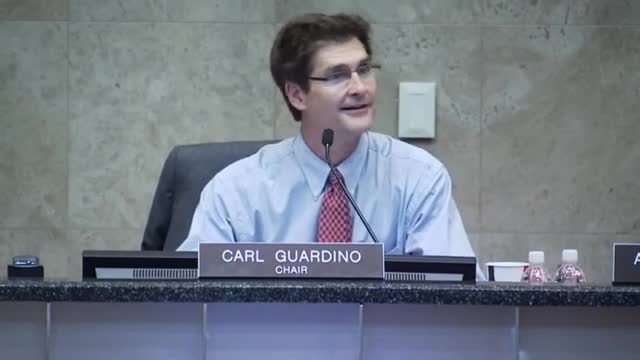CTC approves resolution of necessity for Star Scrap Metal property on I‑5 in La Mirada
Get AI-powered insights, summaries, and transcripts
Subscribe
Summary
The California Transportation Commission voted to adopt a resolution of necessity authorizing a full acquisition of the Star Scrap Metal property in La Mirada for the I‑5 South Corridor freeway widening project. The commission found the taking necessary and urged continued negotiation on compensation.
The California Transportation Commission voted to adopt a resolution of necessity on a full acquisition of the Star Scrap Metal property in La Mirada, clearing a legal step for right‑of‑way acquisition on the I‑5 South Corridor freeway widening project.
Caltrans staff told the commission the department needs 1.8 acres in fee title, a 0.15‑acre temporary construction easement and a 0.26‑acre temporary construction easement from the property, which is approximately 3 acres and currently used as a scrap metal recycling center and warehouse. Stephen Mahler, commission counsel, told commissioners the state is barred from condemning more property than necessary but may acquire an uneconomic remnant that cannot be independently developed. He also noted that Code of Civil Procedure Section 1245.24 requires eight affirmative votes for a resolution of necessity in eminent‑domain proceedings.
The department presented aerial maps and plans showing that South Firestone Boulevard will be realigned and that a 50‑foot zoning setback required by the city of La Mirada would render the existing improvements subject to demolition; the remainder behind the setback was described as 35,013 square feet. Caltrans said updated offers of just compensation for full acquisition were sent to owners on Nov. 5 and Nov. 7, and an updated partial‑acquisition offer was made Dec. 3. District staff told the commission they received a written request from the property owner earlier the same day asking that, if the resolution is adopted, the acquisition be a full take.
Property owner Rose Stero, identified in the record as president of Star Scrap Metal Company and Metal Depot, told the commission she and her family have run the business since 1947 and that the site supports about 60 employees. "I don't want Caltrans to put me out of business," she said, describing the business as a family legacy and saying relocation options had proven infeasible. Stero also said her attorneys had exchanged appraisals and other materials with Caltrans and that she feared promises would be lost if a settlement were not signed promptly.
Attorneys for both sides reported intensive, recent negotiations and said they believed a settlement could be finalized within days to 10 days if the remaining legal approvals were obtained from Caltrans right‑of‑way counsel. Katrina Diaz, who identified herself as counsel for VCJT LLC (one of the owners), addressed the commission briefly and asked that the commission proceed with a full take rather than delay the vote.
Commissioners debated whether to delay for another hearing to allow a signed settlement; some commissioners urged more time, while others emphasized the commission's legal duty to decide necessity and not compensation. Commissioner Jim Madaffer moved to adopt staff's recommendation for a resolution of necessity with a full acquisition; Vice Chair Donn D. Dunn seconded the motion. The motion carried on roll call; the commission recorded an affirmative vote meeting the legal threshold required under state law.
The commission's action establishes necessity under the Government Code standard identified by staff; it does not set compensation. Caltrans staff told the commission they would continue negotiating a settlement on compensation with the property owners and their counsel, and that compensation issues will be resolved separately through settlement or court proceedings.
Why this matters: adoption of a resolution of necessity is a prerequisite to allowing the state to proceed with condemnation and clear title for construction. While the action clears a legal hurdle for the $546 million I‑5 widening project in southern Los Angeles County, the owner and Caltrans continue to negotiate compensation and relocation details.
The commission directed Caltrans to continue working toward an amicable settlement where possible; compensation and relocation assistance remain outstanding and may be resolved in subsequent negotiations or litigation.
